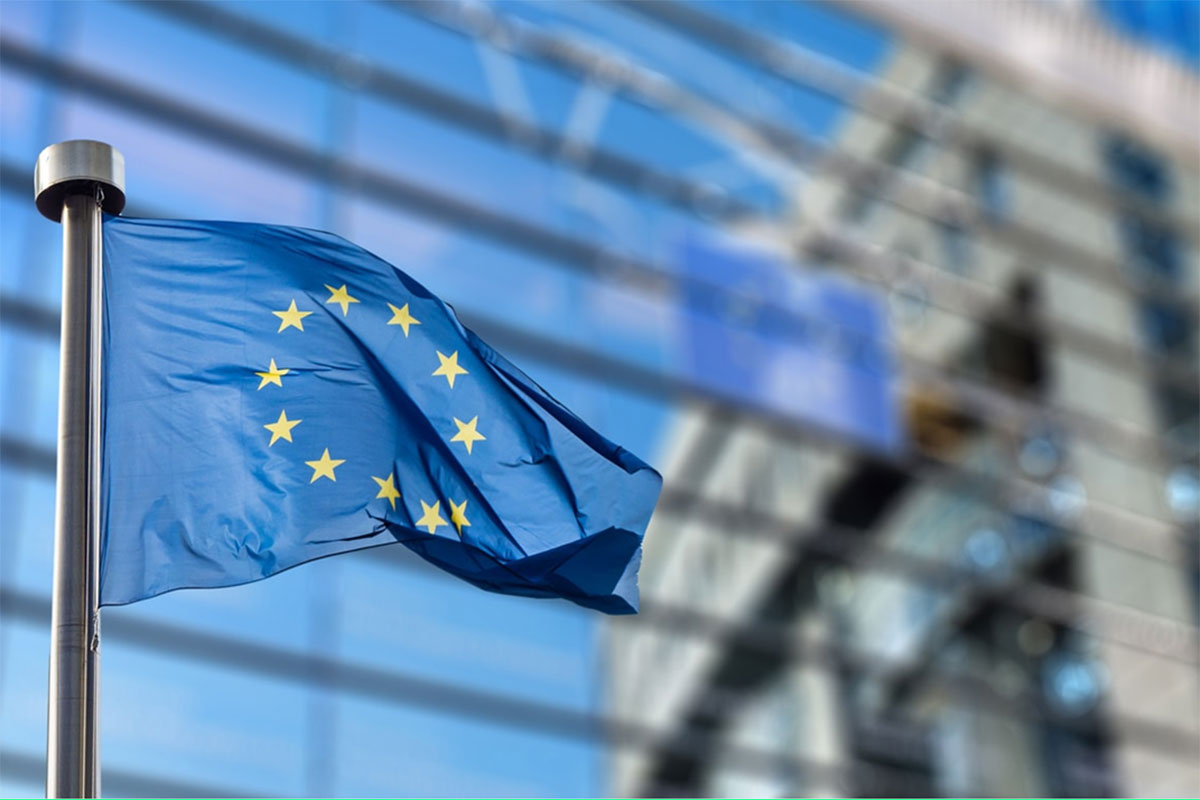The new tone of this year's report, as well as the three visits to Skopje by the President of the European Commission, Ursula von der Leyen, in just one year, illustrate the importance that Brussels continues to dedicate to our country. Our country’s progress is evident, and our “homework” remains to truly revitalize the upcoming harmonization of the Macedonian with the European law, making it more than a regular bureaucratic process.
The key takeaways of the recently published reports of the European Commission on the progress of the countries of the Western Balkans and their presentation by the European Commissioner for Neighbourhood and Enlargement, Olivér Várhelyi, were the first intergovernmental conferences of Macedonia and Albania, the expected and ascertained setback of Serbia in terms of the common foreign policy and granting conditional candidate status to Bosnia and Herzegovina.
The most resounding moment for Macedonia during the presentation of the expansion package was the first intergovernmental meeting, which led to the final start of Skopje's accession negotiations with Brussels. This was the key aspect shared before and during the publication of the ninth consecutive Report on the Progress of Macedonia for 2022, and the analyses indicate a more optimistic vocabulary and more justified hopes.
A new wind at our back, but also a need for new constitutional amendments
With the new light shed on the entire Macedonian European integration path and moving forward on the country's path towards full membership in the EU, we welcomed the Report with an explanatory screening. Together with the previously held intergovernmental conference, these moments, in fact, put the Macedonian negotiation process on the "rails" and slowly but surely, move the ball into our court.
Namely, the moment that we have been waiting for almost 17 years after receiving the candidate status, is also marked with another uniqueness of our "haste" towards the European capitals. The first conference took place, but for the second one to see the light of day, we as a country are faced with the challenge of new constitutional amendments. This implies amendments to the constitutional text that introduce several additional non-majority communities in the Macedonian Constitution, among which is the Bulgarian one.
Constitutional amendments as a prerequisite for a second intergovernmental meeting in Brussels are yet another precedent that, so far, no other countries that have negotiated to join the European family have faced.
While on the public stage in Macedonia, in parliamentary corridors and in political lobbies, there is more and more talk about securing the necessary two-thirds majority, on the European level, Commissioner Várhelyi came out with the Report on our progress and once again perfectly detected the state of affairs in the Macedonian society.
The new and different tone of this year's report also indicates a new approach and way of communication of the European Commission towards our country, which, in this reporting period, has grown from a candidate for membership into a negotiator country. The new phase of the enlargement policy contains several new symbolisms and clear messages, but also the old wounds that the Macedonian system and institutions still fail to adequately address.
These are the weak control of the legislative authority over the executive, widespread corrupt practices, but also in general, the real will to join the European family, as opposed to a merely declarative one.
The "Foundations" and "External Relations" clusters are particularly important for Macedonia
We find that the reporters on the country paid the most attention and focused on the first cluster - Foundations. What is curious is that the analyses of the cluster, this time, show less diplomacy and the absence of "kid gloves" on the part of the Commission when describing the situation, for example, in the State Assembly. The people’s representative body, where by definition, the democratic discussion should be celebrated and the various civil interests should be embodied, was strongly criticized this time.
Misuse of the "European flag", i.e., misusing the flag to justify all sorts of actions, the irrationally increased use of summary proceedings in the Assembly, appointments based on the principle of political affiliation instead of according to the merit system - this is only part of the clear critical tone addressed to the legislator.
The question arises whether the reporters were left with any other option, bearing in mind the poor quality of the debate inside and the violent scenes outside the Assembly while the conclusions on the so-called "French proposal" to remove the Bulgarian veto were debated. It is evident that the heated rhetoric has taken its toll, which is also apparent from this report.

Source: eurodiaconia.org
However, one thing that the report did not mention is the transparency of the highest state representatives and the communication of the proposal of France - which held the presidency of the EU Council during that period. It is clear that absolute transparency at that given moment could harm the process, but once you have a confirmed fact, non-transparency starts working against you. Moderation is necessary and every communication strategy must offer a solution for the space full of semi-truths regarding sensitive topics that can lead to escalations.
Furthermore, what is also notable in the same cluster is the space that the EC dedicates to civil society in the report. In that direction, the EC welcomes the inclusion of civil society as a key stakeholder in the political processes and the environment that continuously enables civil society to function, which is commendable.
On the other hand, cluster 6 - External relations continues to be particularly interesting in Macedonian circumstances. The common foreign and security policy is a chapter that marks significant progress compared to the previous reporting period. This was logical, having in mind the alignment of the Macedonian foreign policy with the European one in terms of the position on the war in Ukraine and on the sanctions against Russia, which were the key elements of our foreign affairs in 2022.
Good neighbourly relations are the second part of the cluster, where the agreements with Greece and Bulgaria are highlighted once again. Bilateral relations with our neighbour to the east have gained additional gravity after the formal overcoming of misunderstandings between the two countries and Sofia’s raising of the ramp to its smaller neighbour.
There is a diplomatic approach, and no sides have been taken in the bilateral issues, however, the Commission also talks about the obligations that the Government has taken on from the perspective of solving the outstanding situations with its neighbours, which are now confirmed by the European institutions.
The preparedness of the Macedonian negotiation teams for the upcoming screening
The beginning of the screening process, that is, the so-called "explanatory screening", is the first step when our negotiation teams are presented with the work ahead of them and serves as a guide for concrete action in the years ahead. The necessary constitutional amendments pose a challenge, but at the same time, there are "rumours" that the issue of staffing and professional preparedness of the negotiating teams will present an even bigger challenge than the other one - the two-thirds majority.
Taking into account the European Commission's criticism of the state administration, the evident lack of appropriate professional staff with in-depth knowledge of the EU accession process will be a new pressing issue. It is to be expected that this will be an additional burning issue that the country and the designated chief negotiator, the Vice Prime Minister for European Affairs Bojan Maricic, will have to solve as they go along.
The ensuing bilateral screening will have to successfully transform us from active listeners to the guidelines from Brussels into clear speakers and precise executors of the numerous obligations and novelties that will have to be implemented domestically. The fact that the EC Report was discussed before the National Council for European Integration in the Macedonian Assembly in the presence of the Ambassador of the European Union, David Geer, Deputy Prime Minister Maricic and MPs of different political provenance sends a positive signal for the temple of our democracy.
For us relentless optimists, we are left with at least some slight space to hope for constructive discussions and for all experts on the European process to come together in the name of accelerated movement on the Macedonian path towards the European institutions.
The light at the end of the tunnel - the Western Balkans truly included in Europe
The new phase of the enlargement policy that followed the first intergovernmental conferences with Macedonia and Albania, as well as some other steps and messages sent from Brussels, undoubtedly indicate that the Western Balkans continues to be on the radar of European representatives.
The more frequent visits of the President of the EC to the region and the significant financial assistance for dealing with the energy crisis cannot be a pure coincidence. This reporting period was marked by the beginning of a new war on the old continent but also by some turbulent moments at home.
Bearing in mind the violent protests against the French proposal and the whole atmosphere of poor political culture, and the absence of well-reasoned dialogue on essential issues in the country, the latest report only confirms how well European reporters have vivisected the state we are in as a country.
The main signal of the Report on Macedonia's progress for 2022 is that the European Commission, despite everything, values the compromises we are making as a country in the name of the European future. Equally important, the long-term nature of the accession process, perhaps not so fittingly named "negotiations", is conditioned by the non-negotiable acceptance of European legislation and standards.
However, added to this is also the political readiness within the Union itself in regard to the implementation of the enlargement policy.
At the same time, as citizens, we must strive to ensure debates on key decisions regarding the strategic directions of the state and, more importantly, that these debates are substantive and not just formal.
The integration of the six countries of the region into the European structures is the most desired regional solution, and it is up to us to make sure that the membership in the European Union will be much more than just a mechanical fulfilment of the European legislation and will bring progress felt by every citizen.
Please refer to the Terms before commenting and republishing the content. Note: The views and opinions expressed in this article are those of the author and do not necessarily reflect the views of the Institute of Communication Studies or the donor.

